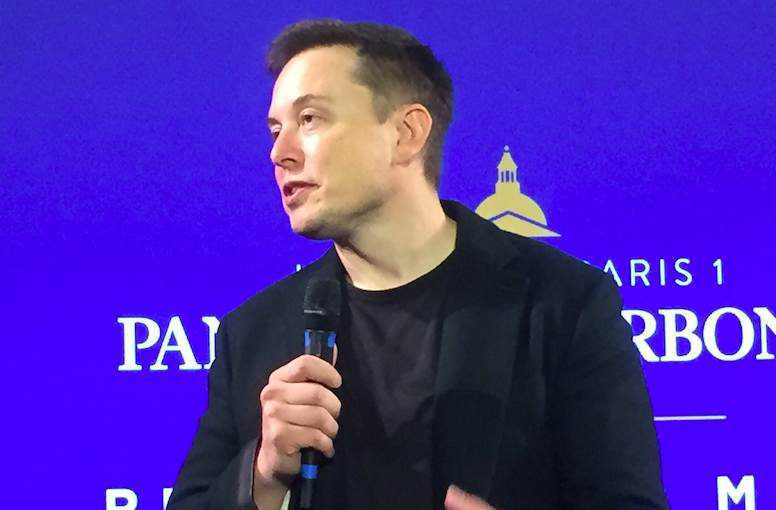Shares in electric vehicle company Tesla tumbled more than 12 per cent in the Nasdaq after-market on Thursday (US time), after the Securities and Exchange Commission filed a law suit against founder and CEO Elon Musk and sought his removal from the board and as an executive.
The SEC filed its suit in the federal court in New York, and is based around Musk’s Twitter Post on August 7 to his 22 million Twitter followers in which he said that “funding secured” to take Tesla private.
It was a Tweet seen as an act of defiance against the short sellers that have been attacked Tesla and Tesla stock in recent years, but it raised questions about whether the funding had, indeed, been “secured”.
The SEC has extremely strict requirements on public announcements and disclosures, and said its investigations have found that “Musk had not discussed specific deal terms with any potential financing partners.”
The SEC documents say the statements were false and misleading, and that Musk either knew that or was “reckless” in not knowing. “In truth and in fact, Musk had not even discussed, much less confirmed, key deal terms, including price, with any potential funding source,” the SEC said.
The lawsuit, filed in federal court in New York, charges Musk with “securities fraud”, and seeks to bar Musk from serving as an executive or director of publicly traded companies.
The implications for Tesla, its stock, employees, and customers are significant. Musk is seen as the irresistible driving force behind the company, which has virtually single-handedly changed world views about electric vehicles, and accelerated the shift away from petrol and diesel cars.
Tesla has also made a big splash in the electricity market, causing market operators to rethink the future of grids via installations like the Tesla big battery.
“This unjustified action by the SEC leaves me deeply saddened and disappointed,” Musk said in a statement.
“I have always taken action in the best interests of truth, transparency and investors. Integrity is the most important value in my life and the facts will show I never compromised this in any way.”
At a press briefing in New York on Thursday, Stephanie Avakian, the co-director of the SEC’s division of enforcement, said chairmen and CEOs of public companies had important responsibilities.
“Those responsibilities include the need to be scrupulous and careful about the truth and accuracy of statements made to the investing public,” she said, and this was the case whether or not the statements were made in formal announcements or on social media.
“Neither celebrity status nor reputation as a technological innovator provide an exemption from the federal securities laws.”
Musk’s tweets in early August proclaimed “funding secured” for a buyout at $US420 a share, although he also said that he hoped loyal investors would stay with the company, even if it was to be privately held and no longer listed.
Tesla’s market capitalisation has soared to well beyond $US50 billion – and on occasions has overtaken both GM and Ford as the biggest car manufacturer by value in the US, despite it only having a fraction of the sales.
Because of that valuation, and possibly also because of the threat that Tesla and the onset of electric vehicles represents to incumbent car and transport fuel industries, Tesla has become a target of critics and naysers, and became the most “shorted” stock on the US market.
A “shorted” stock means that investors have made a bet on the stock falling. The shorting has been accompanied by the creation of Facebook, Twitter and other social media accounts whose focus is on attacking the Tesla brand, its products, and Musk himself.
That has frustrated Musk, and is seen as the reason for him to consider taking the company private, and to take those thoughts public. Those tweets caused the company’s share price to jump nearly 11 per cent in a single day, and the SEC wants Musk to make good on any losses suffered in the price movements.
“When he made these statements, Musk knew that he had never discussed a going-private transaction at $US420 per share with any potential funding source,” the SEC statement says.
“(He) had done nothing to investigate whether it would be possible for all current investors to remain with Tesla as a private company via a ‘special purpose fund,’ and had not confirmed support of Tesla’s investors for a potential going-private transaction.”
And the SEC went further. According to a Bloomberg report, the SEC’s Steven Peikin directly linked the $US420 price to a 20 per cent premium (plus a dollar), and to “amuse” his girlfriend, the singer Grimes.
“While leading Tesla’s investors to believe he had a firm offer in hand, we allege that Musk had arrived at the price of $420 by assuming 20 percent premium over Tesla’s then existing share price then rounding up to $420 because of the significance of that number in marijuana culture and his belief that his girlfriend would be amused by it,” Peikin told media, according to Bloomberg.
Tesla shares were trading at around $US267 in the so-called after market in the US, down from a close just above $US307 before the official close of official trade, and before details of the SEC announcement.
His August 7 Tweet had pushed Tesla’s stock price up more than 6 per cent on the day before Nasdaq imposed a trading halt. Tesla stock closed at $US379.57 on the day of the tweet, some 40 per cent above its current level.

Giles Parkinson is founder and editor of The Driven, and also edits and founded the Renew Economy and One Step Off The Grid web sites. He has been a journalist for nearly 40 years, is a former business and deputy editor of the Australian Financial Review, and owns a Tesla Model 3.

